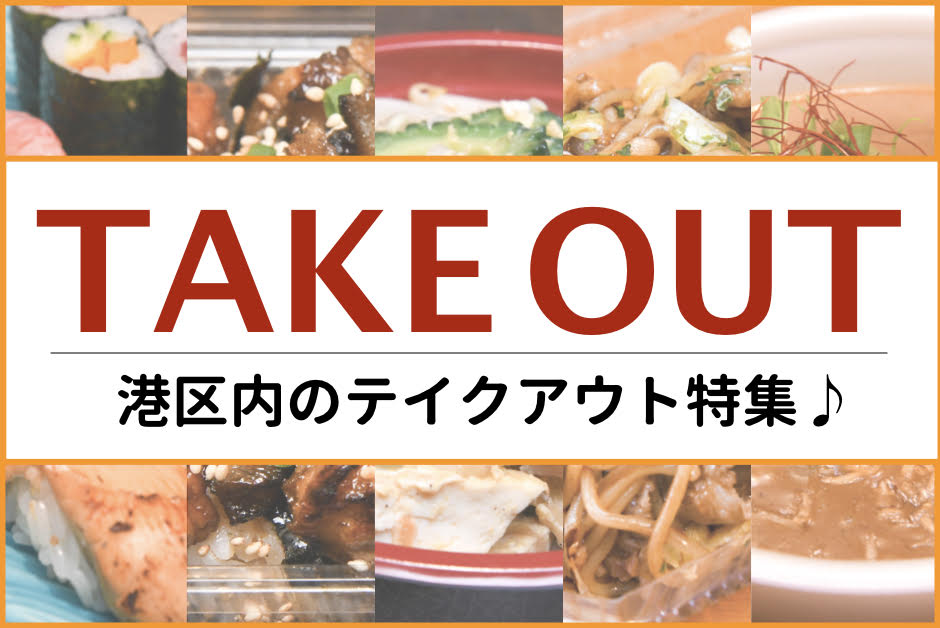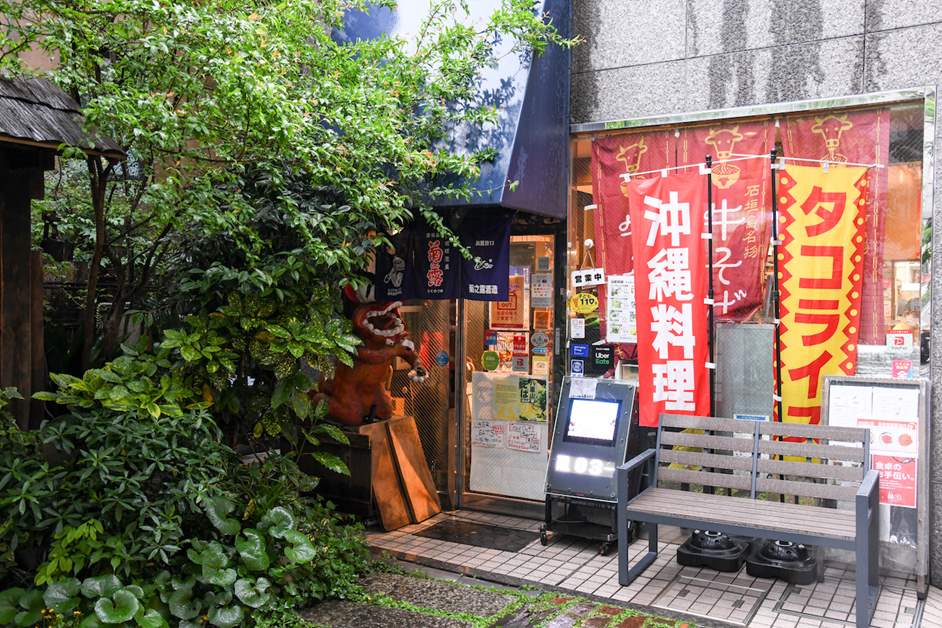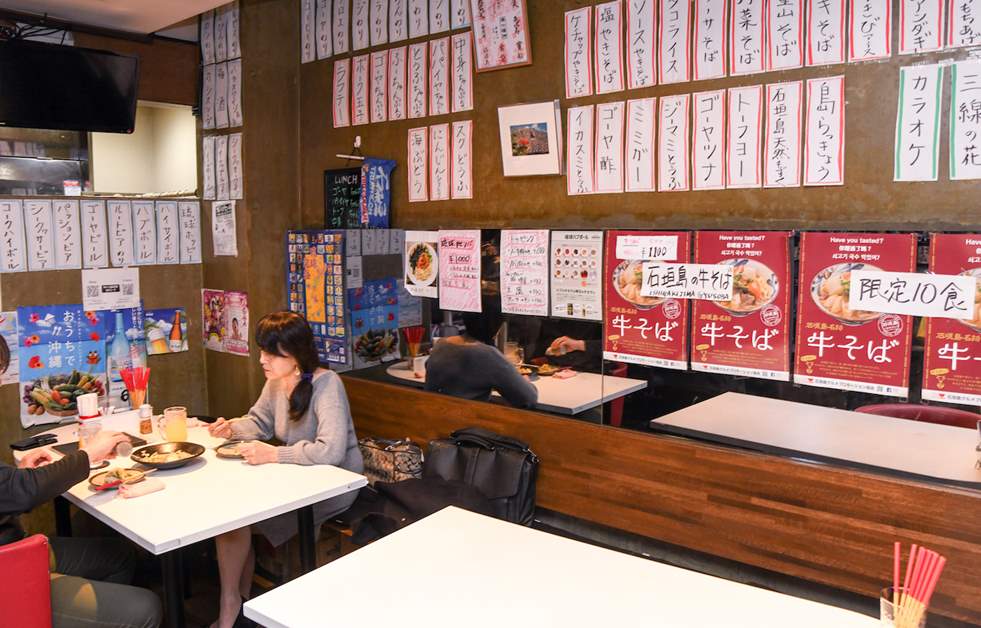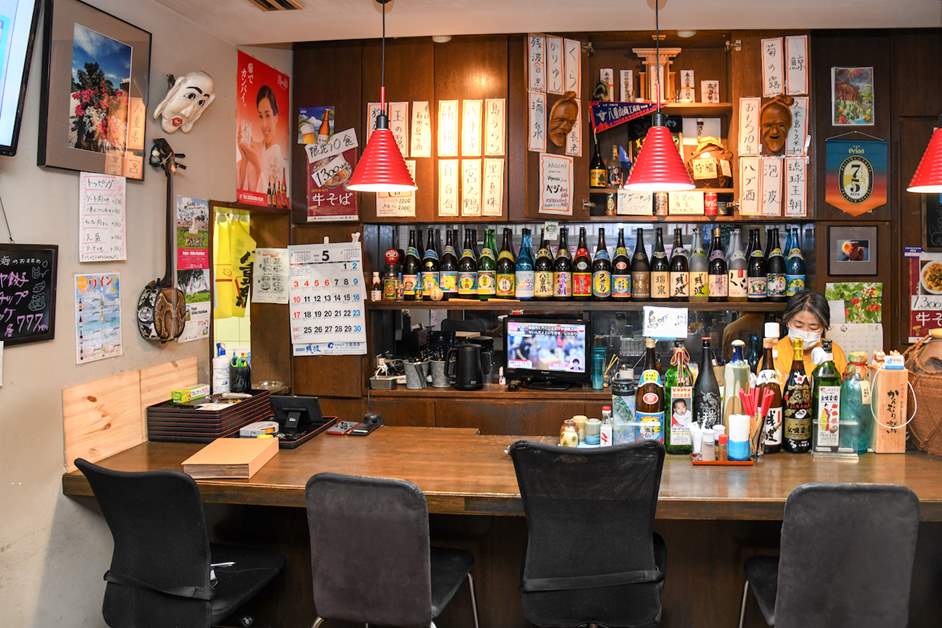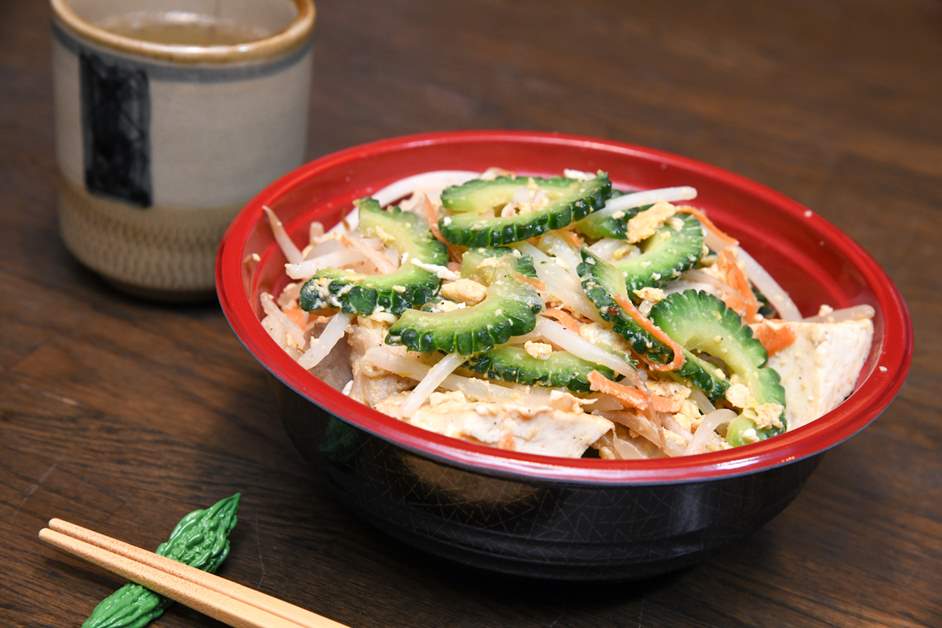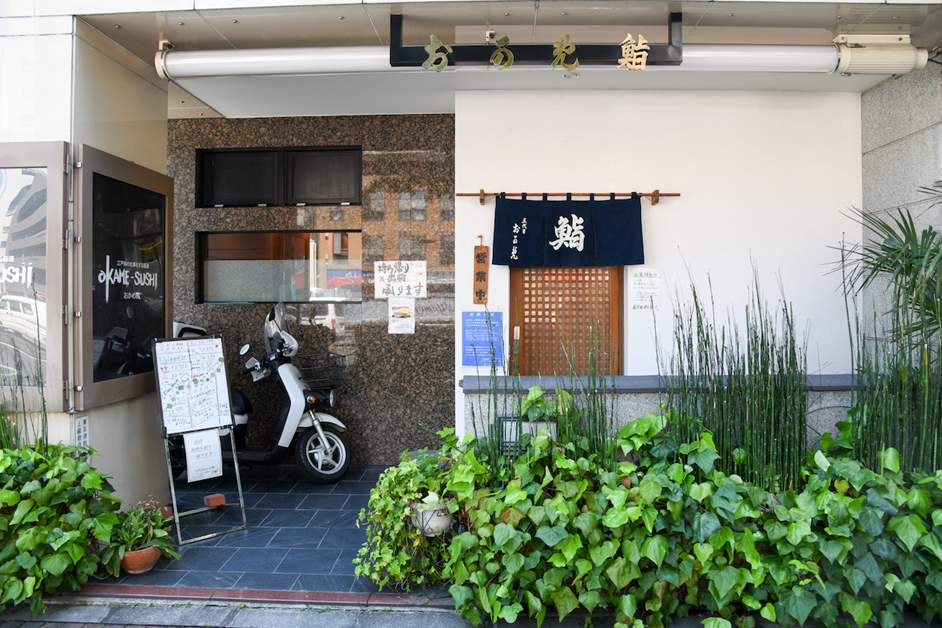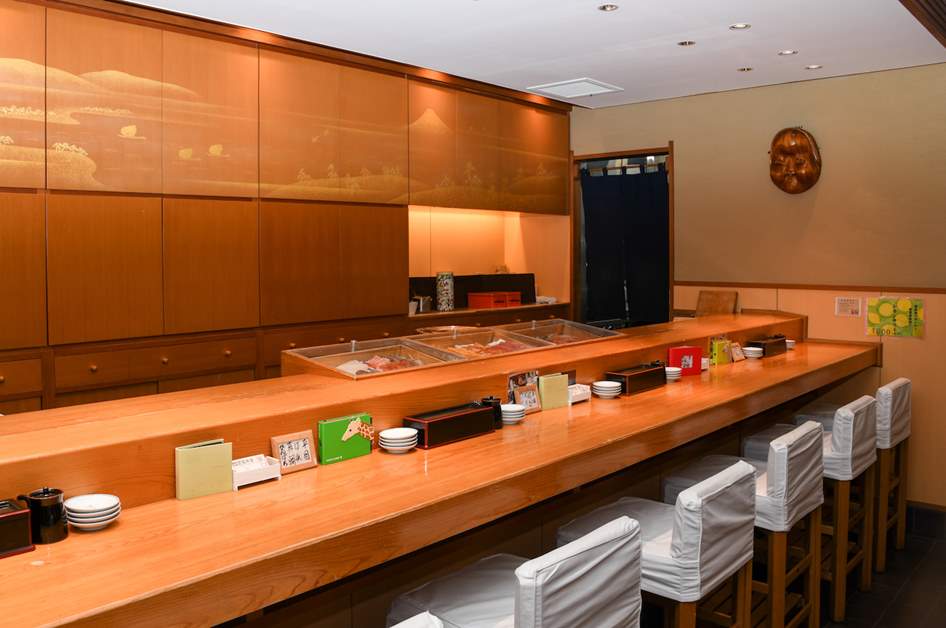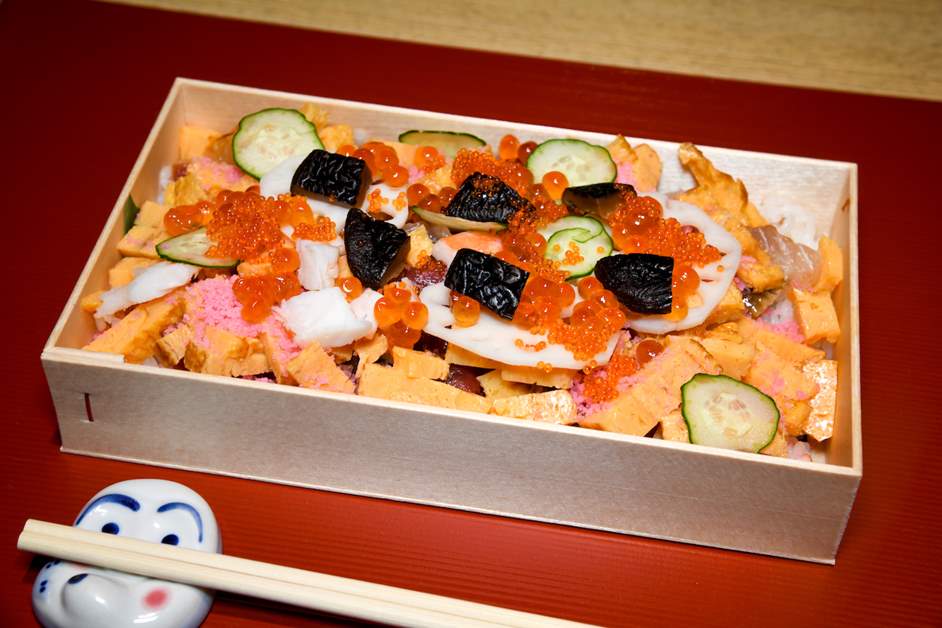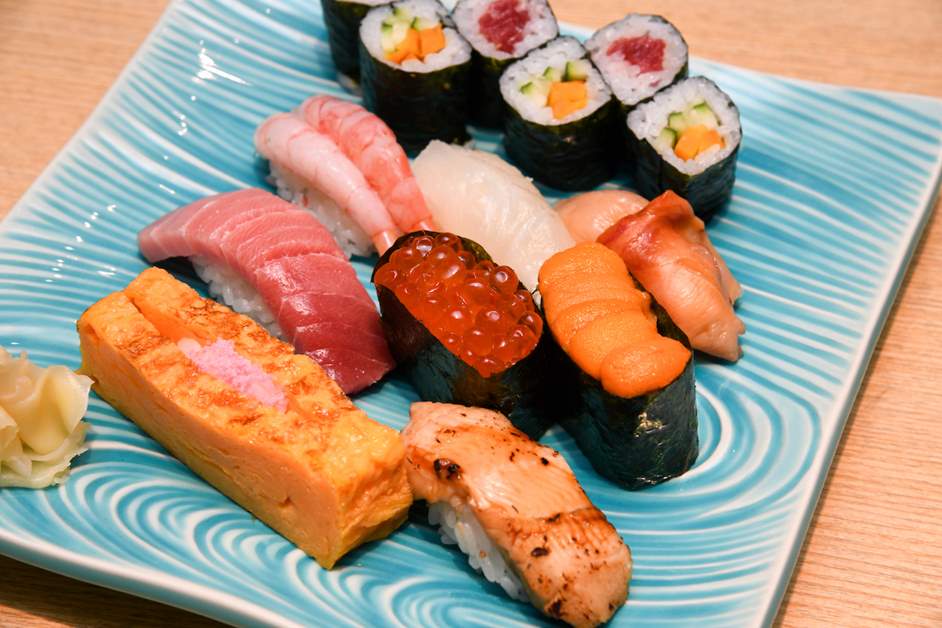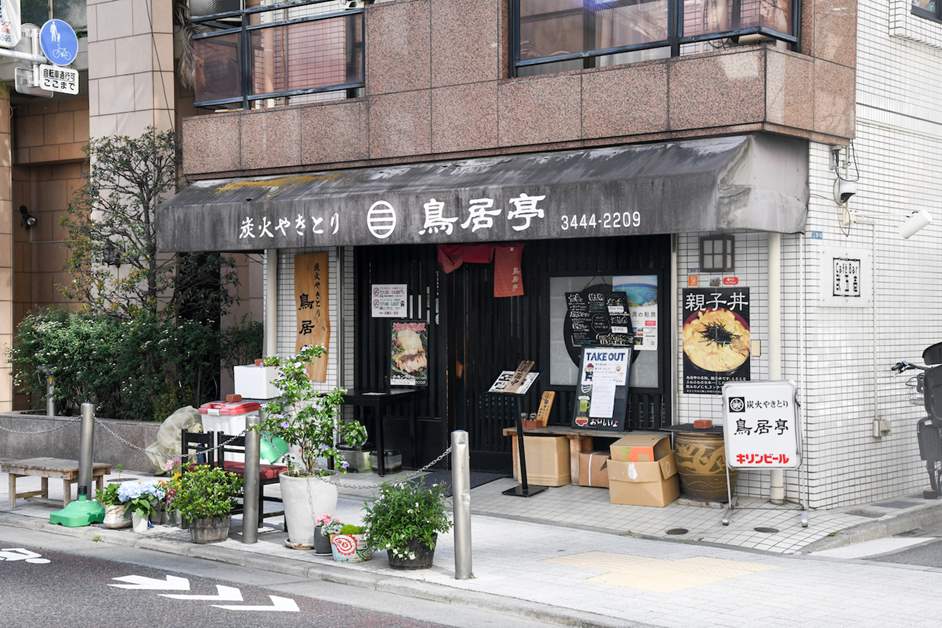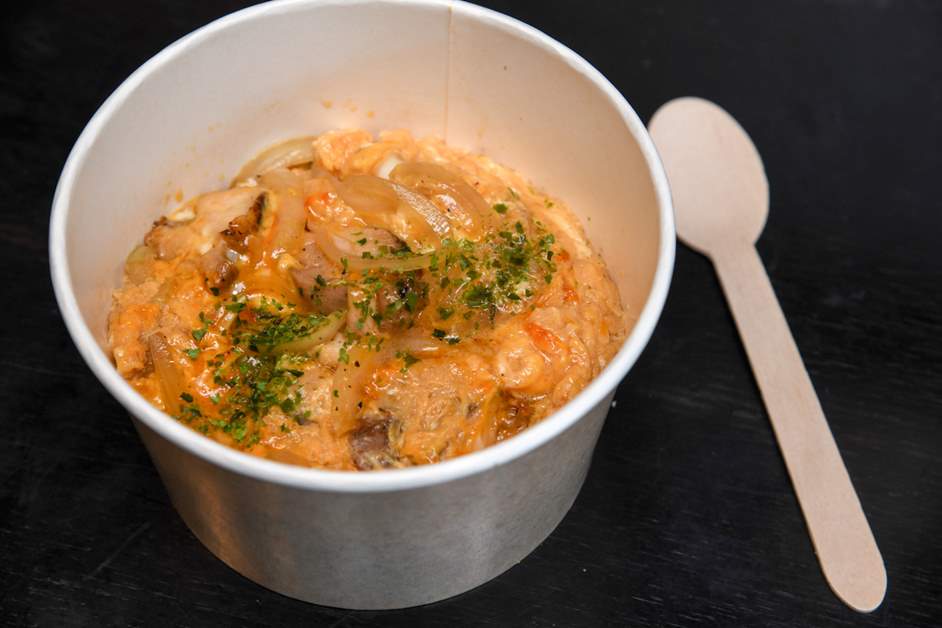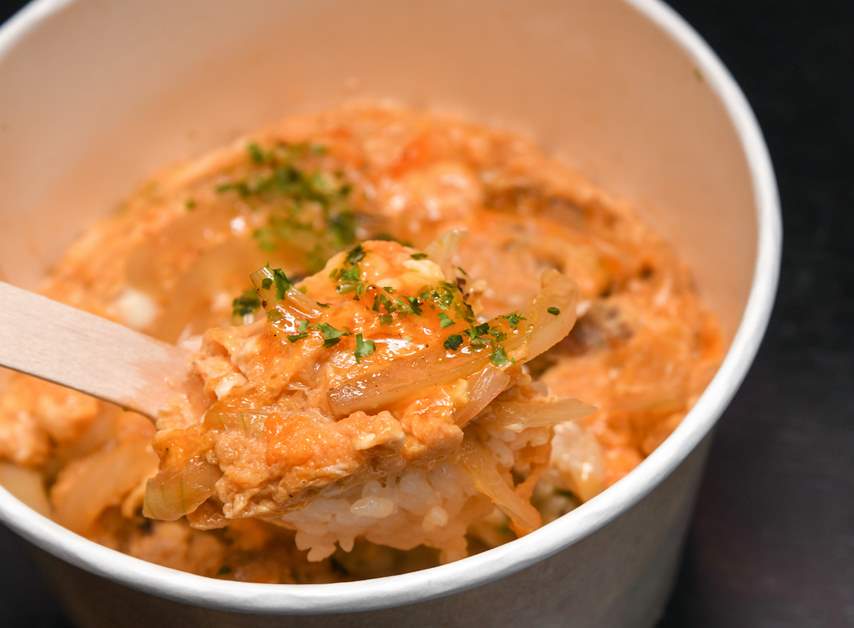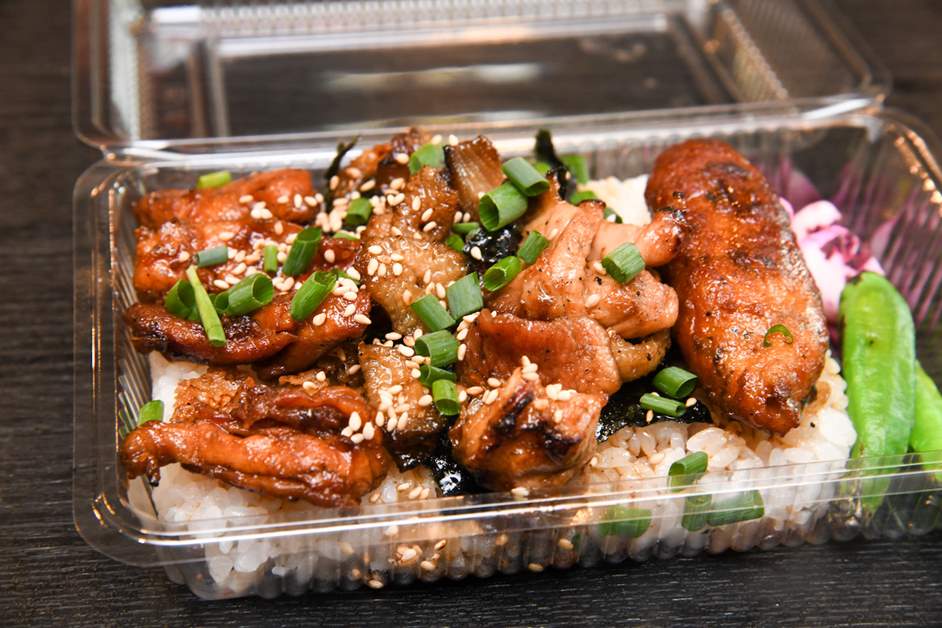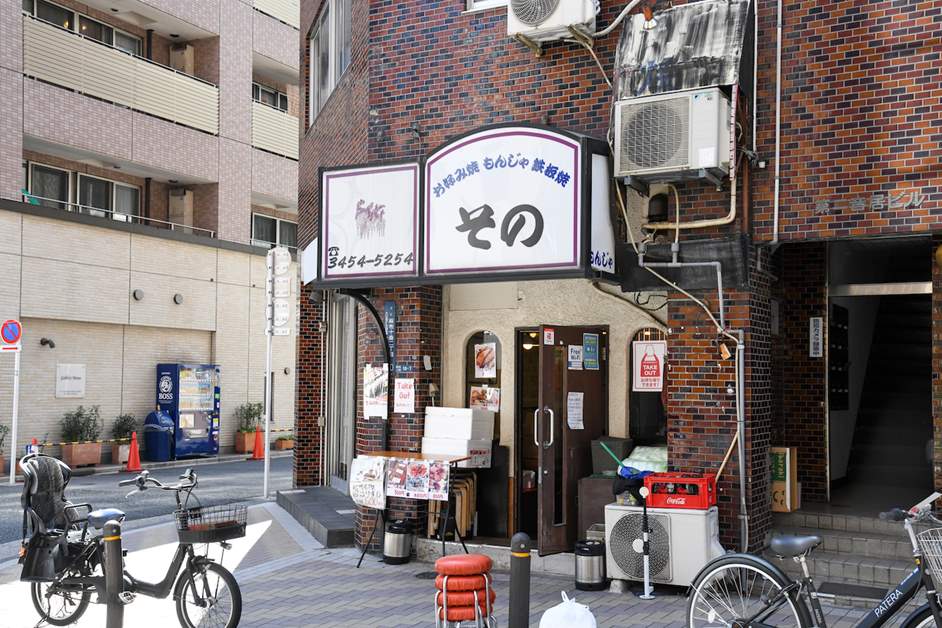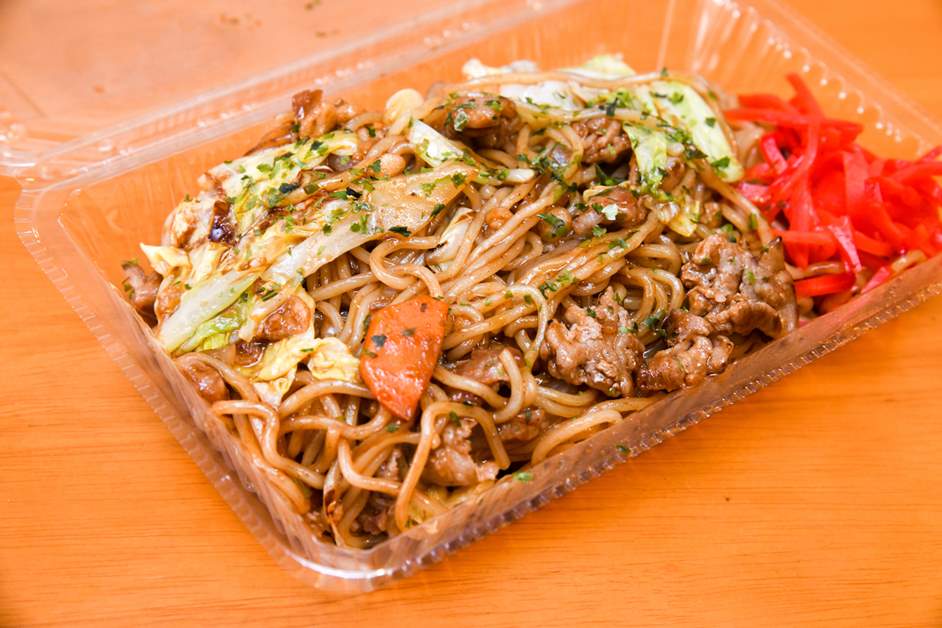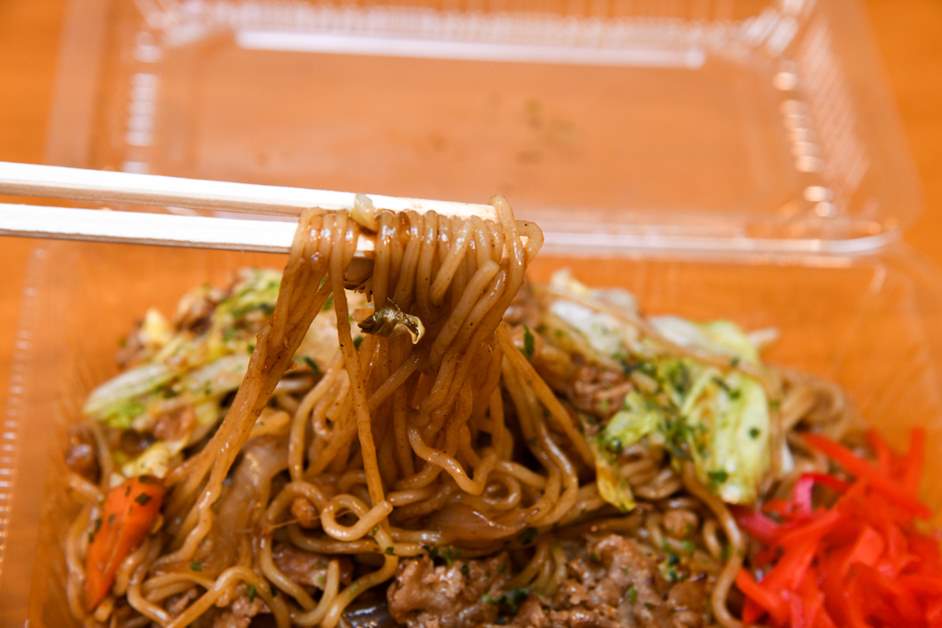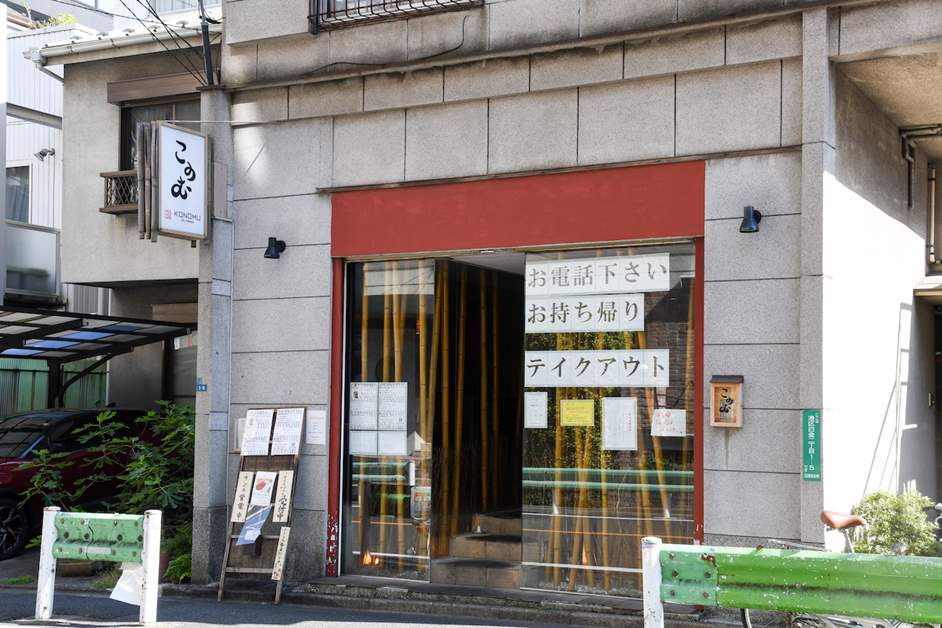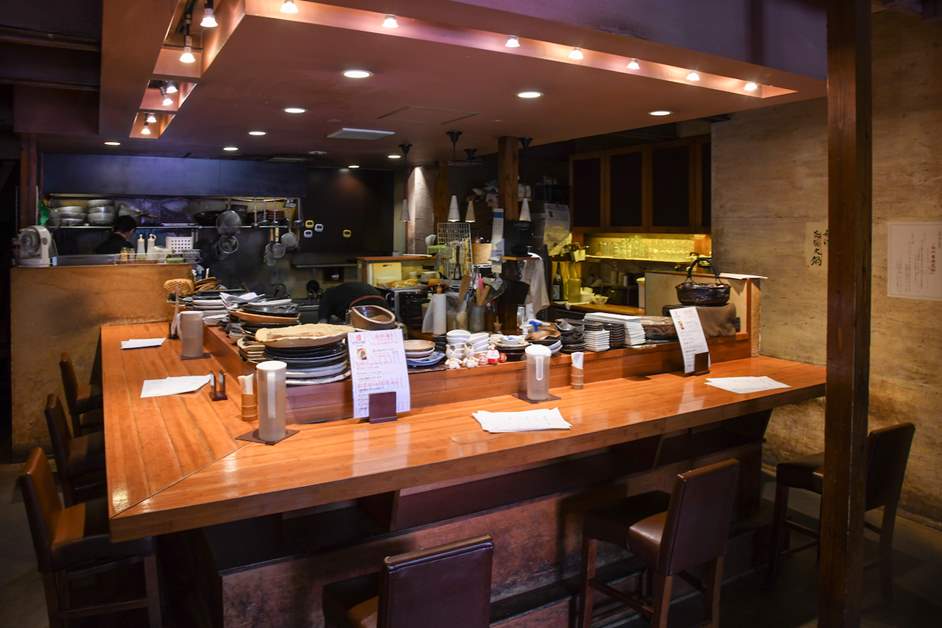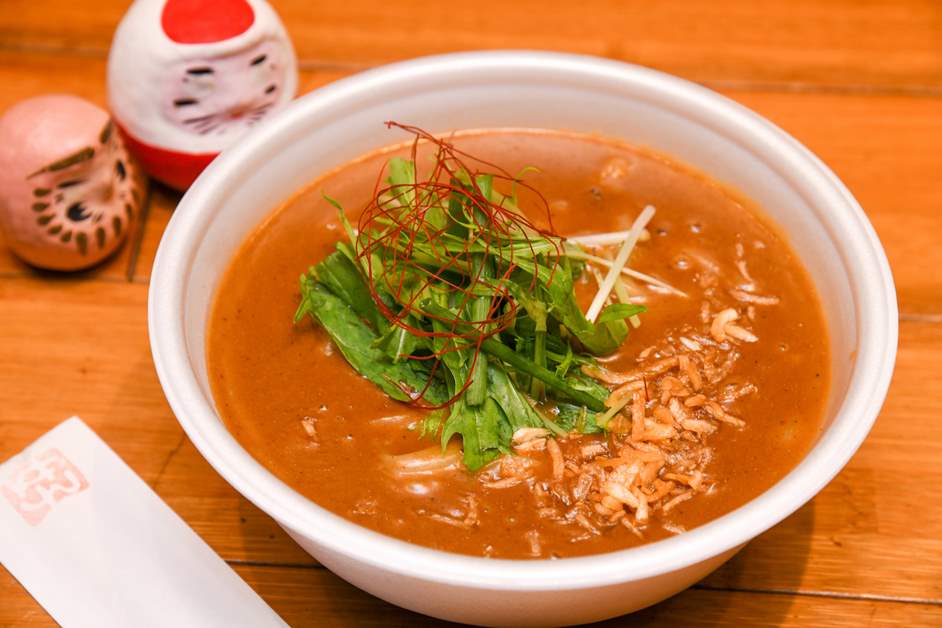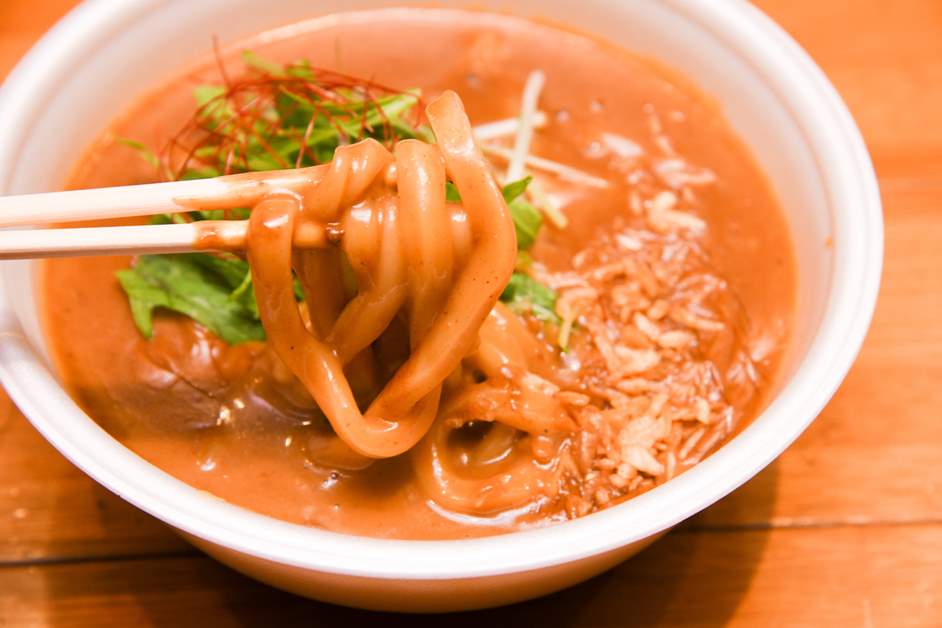Supporting the restaurants in Minato-ku, Tokyo! A feature on gourmet takeout in Minato-ku.
Restaurants are coming up with new ideas and doing their best during the emergency state that has been declared to prevent spreading the novel coronavirus. In this month’s feature, we present you with a gourmet takeout project to support those restaurants in Minato-ku. Among the Minato-ku shopping street association restaurants, we have chosen five restaurants that offer takeout. We have picked some of the best gourmet restaurants there that are guaranteed to make your stomach growl! Let’s support the restaurants in Minato-ku.
《Information on the takeout restaurants featured by the Minato-ku shopping street association here! 》
https://www.minato-smile.net/minato-takeout-list.html
《Information on the takeout restaurants featured by the Minato-ku shopping street association here! 》
https://www.minato-smile.net/minato-takeout-list.html
The legendary goya chanpuru made by the “Master of this town” at Shimauta Paradise Mimami, where they offer aged sake and Okinawan dishes!
A short walk from Nogizaka Station, Shimauta Paradise lies ahead of the cobbled streets that resemble a Japanese-style garden. It is safe to say that this restaurant is a hidden gem in the metropolis, as even the proprietress herself says, “It’s pretty hard to find it, isn’t it?”
This long-standing Okinawan restaurant was founded 23 years ago. It used to be in Roppongi, but they moved their main branch to their second store in Nogizaka last year. The walls of the restaurant are covered with the names of authentic Okinawan dishes on their menu, such as soki soba, rafute, and shima rakkyo. There is also awamori liquor from each area of Okinawa lined up behind the counter where the proprietress stands.
The proprietor in charge of the kitchen was born in Ishigaki Island. The proprietress is mainly in charge of serving the customers, and judging from the atmosphere she creates, she must be from Okinawa—that’s what we thought, but in fact, she is a pure Tokyoite who grew up in Roppongi. We got curious about how they met when we learned that they are from Roppongi and Ishigaki Island. We learned that the proprietress saw a certain movie that got her interested in Ishigaki Island, and made it her dream to one day marry someone from that island. She then met her husband for the first time by coincidence when he visited the restaurant that she ran in Roppongi.
About half their ingredients are shipped from Okinawa by air. The proprietor, who has inherited the taste of Ishigaki island’s home cooking, uses his technique to combine these ingredients to make various authentic Okinawan dishes. “We offer food that tastes like homemade Okinawan food, or ‘Thi-anda,’ as they call it in Ryukyuan language,” says the proprietress. Okinawan food made with skill and the original taste of the ingredients with as few chemical seasonings as possible is very comforting.
Shimauta Paradise’s specialty is, of course, goya chanpuru. The proprietor’s goya chanpuru has been featured as “a masterpiece from this town” three times on the television program, Saturday Night Chubaw!, which aired until 2016. This dish is also acknowledged by Okinawan celebrities who visit this restaurant. For takeout, they are offering this goya chanpuru as “a masterpiece goya bowl” for only ¥700.
Shimauta Paradise’s specialty is, of course, goya chanpuru. The proprietor’s goya chanpuru has been featured as “a masterpiece from this town” three times on the television program, Saturday Night Chubaw!, which aired until 2016. This dish is also acknowledged by Okinawan celebrities who visit this restaurant. For takeout, they are offering this goya chanpuru as “a masterpiece goya bowl” for only ¥700.
When the lid is opened, the goya’s vivid green color glows as if to assert its presence. The bean sprouts stay crisp even after some time. The dish contains pork meat, which makes it very filling. It also includes Ishigaki Island’s special red rice, so as you dig your way through the chanpuru, it feels like you are finding a treasure. You can enjoy this masterpiece that looks and tastes just like the real Okinawan dish.
They offer taco rice and Okinawan yakisoba, also for ¥700. In addition to that, they offer other dishes such as Okinawan soba for takeout, if requested. Furthermore, not only do they respond to delivery requests from Uber Eats, but they also collaborate with other restaurants and sell box lunches at Almond’s pop-up store at Roppongi Crossing at lunchtime on weekdays. (Weekdays from 12:00 p.m. to 2:30 p.m. Make sure to check when they sell them.)
(DATA)
Shimauta Paradise Mimami, Aged sake and Okinawan dishes:
Address: Lira Nogizaka Building, first floor, Minami Aoyama 1-15-18, Minato-ku, Tokyo.
Phone number: 03-5771-1303.
Takeout hours: 11:00 a.m.–2:00 p.m., 5:00 p.m.–12:00 a.m.
Closing days: Sundays and national holidays.
They offer taco rice and Okinawan yakisoba, also for ¥700. In addition to that, they offer other dishes such as Okinawan soba for takeout, if requested. Furthermore, not only do they respond to delivery requests from Uber Eats, but they also collaborate with other restaurants and sell box lunches at Almond’s pop-up store at Roppongi Crossing at lunchtime on weekdays. (Weekdays from 12:00 p.m. to 2:30 p.m. Make sure to check when they sell them.)
(DATA)
Shimauta Paradise Mimami, Aged sake and Okinawan dishes:
Address: Lira Nogizaka Building, first floor, Minami Aoyama 1-15-18, Minato-ku, Tokyo.
Phone number: 03-5771-1303.
Takeout hours: 11:00 a.m.–2:00 p.m., 5:00 p.m.–12:00 a.m.
Closing days: Sundays and national holidays.
Bara chirashi made by the Tokyoite head chef, who has inherited the tradition of the long-standing restaurant, Okame Sushi, fifth generation.
This sushi restaurant was founded in 1856, the second year of the Ansei era during the Bakumatsu period, and it has great history in Tokyo. Entering the restaurant, you are greeted by a cheerful voice as the fifth-generation head chef makes traditional Edomae sushi.
“Edomae sushi is known to be sold at the riverside fish market at Nihonbashi, but in the past, sillago fish and righteye flounders used to be preserved in salt and vinegar, and sold at a place in Shibaura called ‘The evening fish market of Shiba,’ which opened from noon. It is said that it used to be bustling with people since it was a place where common people could easily go, unlike Nihonbashi.”
When the head chef told us this story, it was obvious that not only does he know a lot about sushi, but he is also something of a history expert who is familiar with Edo’s history. Once we sat at the counter, the head chef started a light-hearted conversation and shared with us his extensive knowledge. For example, he said “When this restaurant was first founded, this area was as scenic as Miho no Matsubara,” and “Tokyoites are impatient and hate waiting, so my grandfather, the third-generation head chef, used to make each piece of sushi the size of a convenience store rice ball.”
The head chef says, “The Satsuma Domain residence used to be in this area. Delivering to those samurai residences and the temple district was Okame Sushi’s beginning.” He also says that, sometimes, they would go make the sushi at the customers’ homes. Also, the third-generation head chef used to learn dancing and was deeply knowledgeable about traditional performing arts. During his days in charge of the place, kabuki actors and leading proprietors who had just learned kouta nearby would often visit afterward.
The head chef says, “The Satsuma Domain residence used to be in this area. Delivering to those samurai residences and the temple district was Okame Sushi’s beginning.” He also says that, sometimes, they would go make the sushi at the customers’ homes. Also, the third-generation head chef used to learn dancing and was deeply knowledgeable about traditional performing arts. During his days in charge of the place, kabuki actors and leading proprietors who had just learned kouta nearby would often visit afterward.
The head chef explains, “This area is considered upper class now, but it used to be considered downtown back then.” The price range of both the nigirizushi and the chirashizushi starts in the four-digit yens, which is a price that you would expect to see in a downtown area, but is surprising to see in a long-standing restaurant in Minato-ku. At Okame Sushi, fifth generation, their top recommended takeout menu item is their signature bara chirashi for ¥2,420.
Removing the beautiful wrapping paper reveals the glowing salmon roe on top of the five-colored ingredients underneath it, making it look like a treasure box. The round takeout box is packed with tuna, shrimp, conger eel, and eggs, so it is filling and can be enough for two women. The combination of their carefully selected ingredients tastes incredible. They also offer nigirizushi assortments that start in the four-digit-yen price range.
Removing the beautiful wrapping paper reveals the glowing salmon roe on top of the five-colored ingredients underneath it, making it look like a treasure box. The round takeout box is packed with tuna, shrimp, conger eel, and eggs, so it is filling and can be enough for two women. The combination of their carefully selected ingredients tastes incredible. They also offer nigirizushi assortments that start in the four-digit-yen price range.
The head chef has inherited the over-150-year-old tradition and values the three-way satisfaction concept. Takeout is recommended, however, the conversation you have with the head chef, who has extensive knowledge about history and rakugo, is part of the charm of long-standing restaurants. So, it would be nice to be able to visit the restaurant to have lunch or dinner, and spend a relaxing time.
(DATA)
Okame Sushi, fifth generation:
Address: Shibahama Building, first floor, Shiba 4-9-4, Tokyo.
Phone number: 03-3451-6430.
Takeout hours: starts accepting orders from 11:00 a.m.
Closing days: Sundays, Saturdays, and national holidays.
(DATA)
Okame Sushi, fifth generation:
Address: Shibahama Building, first floor, Shiba 4-9-4, Tokyo.
Phone number: 03-3451-6430.
Takeout hours: starts accepting orders from 11:00 a.m.
Closing days: Sundays, Saturdays, and national holidays.
Oyakodon made with eggs rich with flavor, representing the memories of a mother and her son from Toriitei.
Toriitei, a chicken specialty restaurant most known for its charcoal-grilled chicken, is a two-minute walk from Shirokane-Takanawa Station. The restaurant was founded in 1996 and is now managed by the second-generation restaurant proprietor, who has inherited it from the original founder, his mother.
Fresh chicken is the base for all their dishes, and they source it from Tsukiji’s famous store, Miyagawa Shokuchou Keiran. For lunch, their menu revolves around oyakodon and chicken rice (khao man gai,) which are so popular that, normally, they have a queue in front of the restaurant. On the other hand, at night, the fragrant chicken grilled on binchotan charcoal is very popular. (They are currently closed at night.) The restaurant is always lively thanks to the harmony between the proprietor, who is active as a pro rapper, and the cheerful proprietress.
At Toriitei, their recommended takeout menu item is their most popular signature oyakodon for ¥800, and their takeout-menu exclusive item, the grilled chicken bowl for ¥1,000.
“This restaurant’s specialty used to be the quarrels between me and my mom (laughs.) We tried to come up with another specialty for our restaurant, and that is how the oyakodon was created,” said the proprietor regarding the backstory of creating their oyakodon, half-jokingly (?) As we listened to further details from them, we learned that their oyakodon was the product of blood, sweat, and tears. When the current proprietor was still helping around the restaurant as an apprentice, they failed many times at creating this dish until they perfected it, so it is full of memories of them together.
“This restaurant’s specialty used to be the quarrels between me and my mom (laughs.) We tried to come up with another specialty for our restaurant, and that is how the oyakodon was created,” said the proprietor regarding the backstory of creating their oyakodon, half-jokingly (?) As we listened to further details from them, we learned that their oyakodon was the product of blood, sweat, and tears. When the current proprietor was still helping around the restaurant as an apprentice, they failed many times at creating this dish until they perfected it, so it is full of memories of them together.
They also carefully select all the ingredients, not only the chicken. They use eggs from Ako, Hyogo, which are considered to be the best eggs in Japan, and are said to have about 30-times the amount of vitamin E found in normal eggs. They also use onions from Awaji island, which are known for their sweetness and tenderness. The eggs are cooked for the perfect duration, making them rich and creamy. The fragrant chicken with lightly charcoal-roasted skin shows how much pride they take in creating these dishes as a grilled chicken restaurant.
For the grilled chicken bowl, they have two plentiful types of grilled chicken other than the thighs and chicken meatballs, and they change every day. Compared to the delicate taste of the oyakodon, this dish has a stronger taste and its rich sauce will stimulate your appetite. The rice is delicious even with the sauce alone, so you can enjoy this in an unorthodox way by setting the grilled chicken aside on a plate to enjoy it with alcohol.
“With prior reservation, we can prepare the grilled chicken à la carte, so please use this opportunity to enjoy the flavor of our dishes,” said the proprietor. Please try their popular, traditional flavor that has been passed down from mother to son!
(DATA)
Toriitei:
Address: Hirano Building, first floor, 1-25-15, Minato-ku, Tokyo.
Phone number: 03-3444-2209.
Takeout hours: 11:30 a.m.–2:00 p.m., 4:00 p.m.–6:00 p.m.
Closing days: Saturdays.
“With prior reservation, we can prepare the grilled chicken à la carte, so please use this opportunity to enjoy the flavor of our dishes,” said the proprietor. Please try their popular, traditional flavor that has been passed down from mother to son!
(DATA)
Toriitei:
Address: Hirano Building, first floor, 1-25-15, Minato-ku, Tokyo.
Phone number: 03-3444-2209.
Takeout hours: 11:30 a.m.–2:00 p.m., 4:00 p.m.–6:00 p.m.
Closing days: Saturdays.
Simple, yet elaborate yakisoba at Okonomiyaki Sono.
This is an okonomiyaki and monjayaki restaurant located in Zoushiki St. in Azabujuban Shopping District. Just like the Azabujuban town itself, this restaurant combines new and nostalgic aspects, bringing back the Showa-era style to the place, and giving the restaurant an impressive old-fashioned appearance.
This restaurant was founded 41 years ago by the current proprietor’s mother. She named it Sono because she wanted to make it a “Sono,” or a “Garden” where everybody gathered.
It’s a small place that takes about 10 people to fill, but their food menu alone, which is pasted on the wall, has an uncountable variety of items such as okonomiyaki, monjayaki, teppanyaki, and à la carte items. The proprietor says, “People who work at nearby restaurants pass by after they finish work. They request so many dishes that our menu items have kept increasing.” This cozy atmosphere that makes you feel at home is most likely what made this restaurant a comfortable place for the locals for a long time.
It’s a small place that takes about 10 people to fill, but their food menu alone, which is pasted on the wall, has an uncountable variety of items such as okonomiyaki, monjayaki, teppanyaki, and à la carte items. The proprietor says, “People who work at nearby restaurants pass by after they finish work. They request so many dishes that our menu items have kept increasing.” This cozy atmosphere that makes you feel at home is most likely what made this restaurant a comfortable place for the locals for a long time.
They have five takeout menu items: yakisoba for ¥500, grilled ham from Unzen, Nagasaki for ¥650, omurice for ¥600, beef bowl for ¥600, and taco rice for ¥700. In addition, they sometimes offer unusual box lunches that contain items such as meharizushi from their acquaintance’s restaurant at Iidabashi, or penne from a friend’s bar.
Their top recommended menu item, yakisoba, is simple, yet there is a sincerely-developed flavor behind its simplicity. It’s known for its two-ingredient spicy sauce, crisp vegetables, and a great amount of meat. It’s delicious and comforting.
Their top recommended menu item, yakisoba, is simple, yet there is a sincerely-developed flavor behind its simplicity. It’s known for its two-ingredient spicy sauce, crisp vegetables, and a great amount of meat. It’s delicious and comforting.
“You can eat inside the restaurant until 8:00 p.m., so make sure to enjoy the taste of our freshly made dishes, inside the restaurant or as takeout,” said the proprietor. It’s conveniently located in Azabujuban, so you can pass by after shopping at Azabujuban.
(DATA)
Okonomiyaki Sono:
Address: Second Otoi Building, Azabujuban 2-10-7, Minato-ku.
Phone number: 03-3454-5254.
Takeout hours: 12:30 p.m.–2:00 p.m., 5:00 p.m.–8:00 p.m. (No fixed closing hours.)
Closing days: Tuesdays.
(DATA)
Okonomiyaki Sono:
Address: Second Otoi Building, Azabujuban 2-10-7, Minato-ku.
Phone number: 03-3454-5254.
Takeout hours: 12:30 p.m.–2:00 p.m., 5:00 p.m.–8:00 p.m. (No fixed closing hours.)
Closing days: Tuesdays.
Konomu Shirokane’s super delicious curry with homemade noodles dish that will make you crave rice.
Konomu Shirokane is a four-minute walk from Shirokane-Takanawa Station. It stands on a road alongside other fancy restaurants and apartment buildings. They have an open kitchen, creating a chic atmosphere where they offer a creative cuisine using ingredients from Gunma Prefecture. This restaurant is popular among all ages.
Their lunch menu revolves around dishes that include their homemade udon noodles, which are made from Joshu flour. For dinner, they offer creative cuisine using pork meat from Joshu and konjac from Shimonita. The combination of the proprietor’s sense and the rich flavors from Gunma create a taste that you cannot enjoy elsewhere.
On the takeout menu, they offer several types of udon noodles and curry rice, as well as Gunma’s specialty, Joshu yakisoba for ¥950, and Joshu’s specialty, sauce katsudon for ¥840. From these dishes, their top recommendation is the most popular lunch item, Konomu’s curry udon noodles.
Just the appearance of their curry udon noodles, which they are proud to make, shows how rich it is. The base of their glowing golden-colored soup is special keema curry, which gets broth and fresh cream added to it. When you lift your chopsticks, the udon noodles are coated in the creamy curry, indicating how thick it is. When you bite a mouthful of it, the spicy and creamy flavors will spread throughout your mouth.
Their homemade noodles have a good texture and chewiness, and it goes really well with the intense, unique flavor of the curry. The fried onion also adds an aromatic flavor to it.
One of the staff members said, “At lunchtime, a lot of customers say that they want rice by the end of their meal.” Certainly, this curry must be delicious on top of rice. When ordering takeout, we recommend you prepare rice at home!
They separately pack the udon noodles and curry, so they stay fresh until you get home. They are also considering a delivery service in the future.
(DATA)
Konomu Shirokane:
Address: Shirokane 2-1-5, Minato-ku, Tokyo.
Phone number: 03-6408-0744.
Takeout hours: accepts orders from 10:00 a.m. to 6:00 p.m. (Pick up your food before 7:00 p.m.)
Closing days: None.
One of the staff members said, “At lunchtime, a lot of customers say that they want rice by the end of their meal.” Certainly, this curry must be delicious on top of rice. When ordering takeout, we recommend you prepare rice at home!
They separately pack the udon noodles and curry, so they stay fresh until you get home. They are also considering a delivery service in the future.
(DATA)
Konomu Shirokane:
Address: Shirokane 2-1-5, Minato-ku, Tokyo.
Phone number: 03-6408-0744.
Takeout hours: accepts orders from 10:00 a.m. to 6:00 p.m. (Pick up your food before 7:00 p.m.)
Closing days: None.




